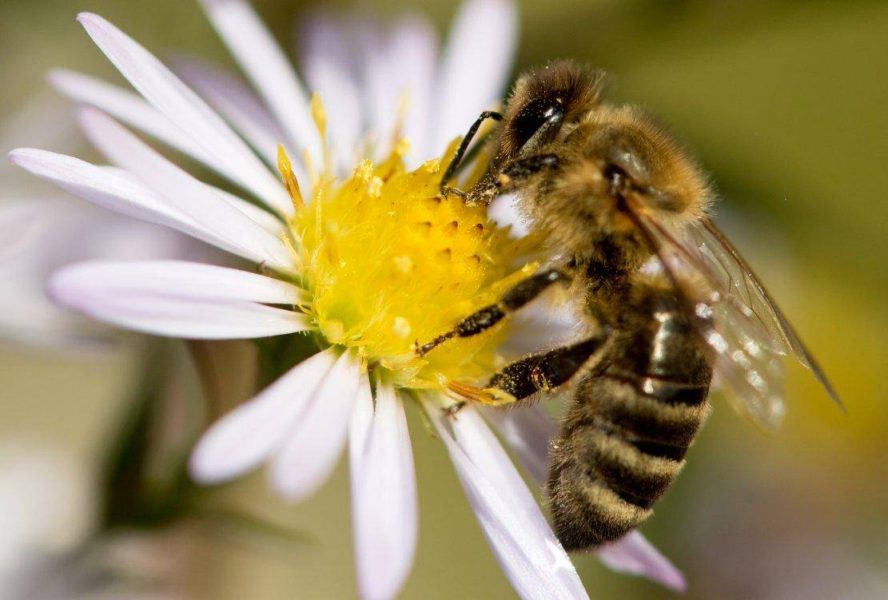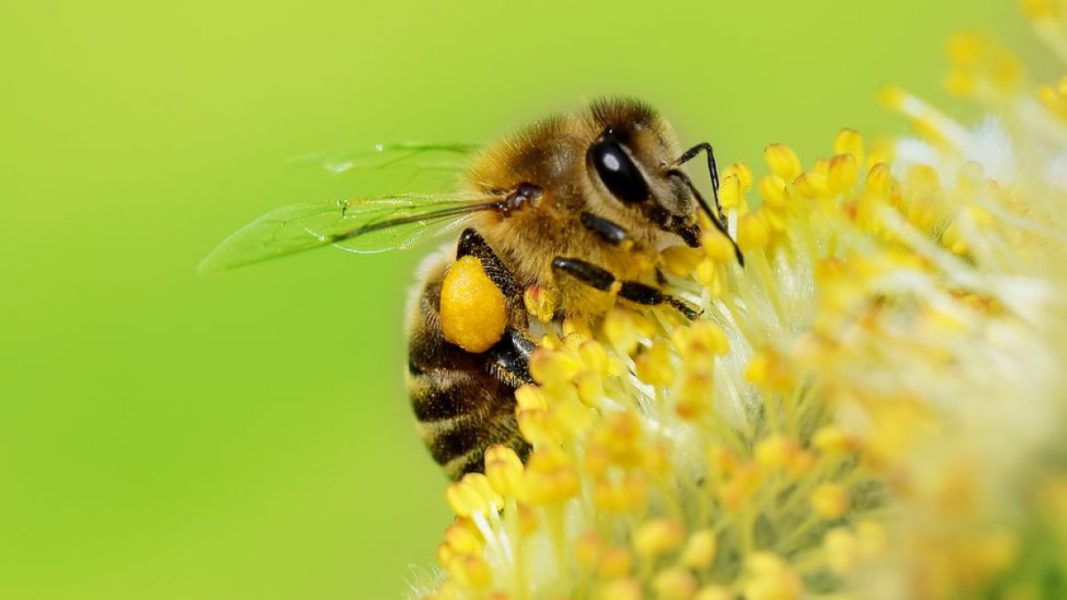El pasado 27 de abril de 2018 se prohibía en la Unión Europea el uso de tres insecticidas responsables de la muerte masiva de millones de abejas. Los insecticidas prohibidos (imidacloprid y clothianidin, fabricados por la multinacional Bayer; y thiamethoxaman, un producto de Syngenta) son los culpables de que estos insectos, esenciales para la polinización de muchas especies agrícolas, y para la biodiversidad, estén en situación de grave amenaza. Las abejas son uno de los animales imprescindibles para la cadena alimentaria.
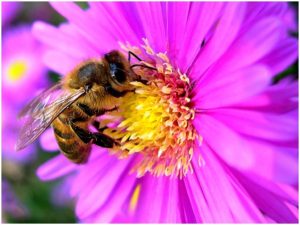 Según la organización Greenpeace España, que puso en marcha una tenaz campaña de sensibilización para obtener la prohibición de estos insecticidas neonicotinoides, el 75% de los alimentos que consumimos dependen de la polinización, mientras que el valor económico que la labor de polinización de las abejas representa para la agricultura española se eleva a 2,5 millones de euros.
Según la organización Greenpeace España, que puso en marcha una tenaz campaña de sensibilización para obtener la prohibición de estos insecticidas neonicotinoides, el 75% de los alimentos que consumimos dependen de la polinización, mientras que el valor económico que la labor de polinización de las abejas representa para la agricultura española se eleva a 2,5 millones de euros.
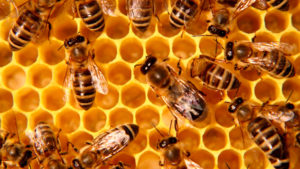 Pero, no solamente la polinización es crucial en la cadena alimentaria, sino que la producción de miel y de cera provenientes de las abejas domésticas (Apis mellifera), son indispensables en la vida del ser humano. Tal es la importancia de este modesto insecto himenóptero, que la Sociedad Geográfica Real de Londres lo eligió en el 2017 como la especie de mayor valor del planeta.
Pero, no solamente la polinización es crucial en la cadena alimentaria, sino que la producción de miel y de cera provenientes de las abejas domésticas (Apis mellifera), son indispensables en la vida del ser humano. Tal es la importancia de este modesto insecto himenóptero, que la Sociedad Geográfica Real de Londres lo eligió en el 2017 como la especie de mayor valor del planeta.
Sin embargo, no existe una sola clase de abeja melera en el mundo, siendo algunas de las subespecies más reseñables la Apis mellifera caucasica; Apis mellifera carnica, cuya área de distribución es Eslovenia; Apis mellifera iberica, propia de la península Ibérica; Apis mellifera lingustica, propia del Sur de Italia; Apis mellifera mellifera, también conocida como abeja negra y distribuida en varias regiones europeas; Apis mellifera major, propia del norte de Marruecos, y Apis mellifera jemenitica, oruinda de Yemén y adaptada a climas desérticos, entre muchas otras. Las islas Canarias también poseen una abeja autóctona conocida como negra y muy apreciada.
En la cultura islámica, la abeja es un ser animal con una notable carga simbólica. El propio Corán contiene una azora dedicada a las abejas y las nombra en diversas ocasiones, como fuente de reflexión acerca la belleza y perfección de la naturaleza.
“Tu Señor ha inspirado a las abejas: ’Estableced habitaciones en las montañas, en los árboles y en las construcciones humanas. Después comed de todos los frutos y caminad dócilmente por los caminos de vuestro Señor’. De su vientre sale un jarabe de color diverso, que contiene un remedio para los hombres. Ciertamente, hay en ello un signo para gente que reflexiona». (16:68-69)
Por todo ello, en «Med-O-Med, paisajes culturales del Mediterráneo y Oriente Medio», desde donde defendemos un modelo de agricultura ecológica y sostenible, libre de pesticidas y plaguicidas nocivos, no podemos sino alegrarnos de este importante paso.
Votos a favor
De los 27 países miembro de la UE, 16 votaron en favor de la prohibición de los tres insecticidas, y entre ellos, España. También votaron favorablemente Alemania, Estonia, Irlanda, Grecia, Francia, Chipre, Italia, Luxemburgo, Malta, Holanda, Austria, Eslovenia, Suecia, Portugal y Reino Unido. Los cuatro países que se opusieron fueron República Checa, Dinamarca, Hungría y Rumanía, mientras que Bulgaria, Bélgica, Croacia, Letonia, Lituania, Polonia y Eslovaquia se abstuvieron.
«Estos tres insecticidas son sólo la punta del iceberg. Hay muchos más pesticidas, incluidos otros neonicotinoides, que son igual de peligrosos para las abejas y la producción de alimentos. Los Gobiernos deben prohibir todos los pesticidas que dañan a las abejas y alejarse por fin de los químicos tóxicos en la agricultura».
Como se aprecia, el voto de los países mediterráneos, en general, fue decisivo. De hecho, la región Med-O-Med, debido a su alta producción en arboricultura y fruticultura, era una de las más castigadas por el uso de estos plaguicidas.
La organización Greenpeace, sin embargo, recalca que, aunque este triunfo ambientalista es extraordinario, estos insecticidas no son los únicos responsables de la desaparición masiva de abejas en el mundo, sino que también los son otros plaguicidas con componentes distintos, así como la pérdida de hábitats y de alimento para las abejas, debido al incremento de la agricultura intensiva.
De hecho, según declaraciones de Franziska Achterberg, portavoz de Greenpeace en Bruselas, «Estos tres insecticidas son sólo la punta del iceberg. Hay muchos más pesticidas, incluidos otros neonicotinoides, que son igual de peligrosos para las abejas y la producción de alimentos. Los Gobiernos deben prohibir todos los pesticidas que dañan a las abejas y alejarse por fin de los químicos tóxicos en la agricultura».
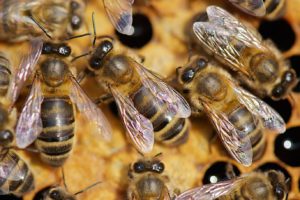 Es importante recalcar que, detrás de esta importante decisión política está el trabajo y la presión de muchas organizaciones ambientalistas, además de Greenpeace. Recientemente, según europapress, 101 ONG enviaban una carta abierta a la ministra española de Agricultura y Pesca, Alimentación y Medio Ambiente, Isabel García Tejerina, para que España votara en favor de la propuesta de la Comisión Europea en este sentido.
Es importante recalcar que, detrás de esta importante decisión política está el trabajo y la presión de muchas organizaciones ambientalistas, además de Greenpeace. Recientemente, según europapress, 101 ONG enviaban una carta abierta a la ministra española de Agricultura y Pesca, Alimentación y Medio Ambiente, Isabel García Tejerina, para que España votara en favor de la propuesta de la Comisión Europea en este sentido.
La medida entrará en vigor a finales de año.
Inés Eléxpuru – FUNCI
This post is available in: English Español

